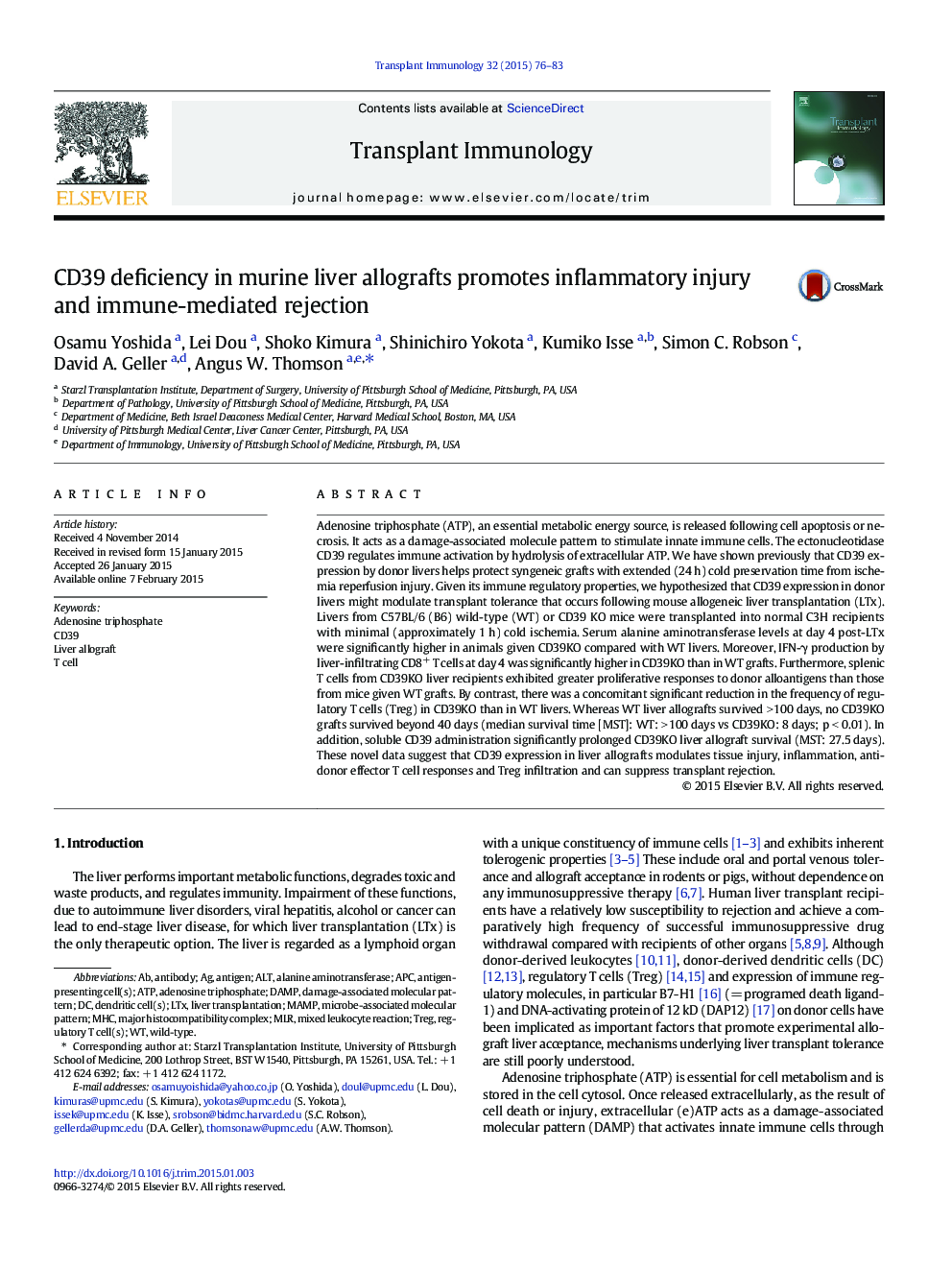| Article ID | Journal | Published Year | Pages | File Type |
|---|---|---|---|---|
| 3392058 | Transplant Immunology | 2015 | 8 Pages |
•Injury was enhanced in CD39KO compared with wild-type liver allografts post-transplant.•IFN-γ production by CD8+ T cells was enhanced in CD39KO liver allografts.•The frequency of regulatory T cells was reduced in CD39KO liver allografts.•Median survival time for WT grafts was > 100 days, but only 8 days for CD39KO grafts.•Soluble CD39 administration significantly prolonged CD39KO liver allograft survival.
Adenosine triphosphate (ATP), an essential metabolic energy source, is released following cell apoptosis or necrosis. It acts as a damage-associated molecule pattern to stimulate innate immune cells. The ectonucleotidase CD39 regulates immune activation by hydrolysis of extracellular ATP. We have shown previously that CD39 expression by donor livers helps protect syngeneic grafts with extended (24 h) cold preservation time from ischemia reperfusion injury. Given its immune regulatory properties, we hypothesized that CD39 expression in donor livers might modulate transplant tolerance that occurs following mouse allogeneic liver transplantation (LTx). Livers from C57BL/6 (B6) wild-type (WT) or CD39 KO mice were transplanted into normal C3H recipients with minimal (approximately 1 h) cold ischemia. Serum alanine aminotransferase levels at day 4 post-LTx were significantly higher in animals given CD39KO compared with WT livers. Moreover, IFN-γ production by liver-infiltrating CD8+ T cells at day 4 was significantly higher in CD39KO than in WT grafts. Furthermore, splenic T cells from CD39KO liver recipients exhibited greater proliferative responses to donor alloantigens than those from mice given WT grafts. By contrast, there was a concomitant significant reduction in the frequency of regulatory T cells (Treg) in CD39KO than in WT livers. Whereas WT liver allografts survived > 100 days, no CD39KO grafts survived beyond 40 days (median survival time [MST]: WT: > 100 days vs CD39KO: 8 days; p < 0.01). In addition, soluble CD39 administration significantly prolonged CD39KO liver allograft survival (MST: 27.5 days). These novel data suggest that CD39 expression in liver allografts modulates tissue injury, inflammation, anti-donor effector T cell responses and Treg infiltration and can suppress transplant rejection.
